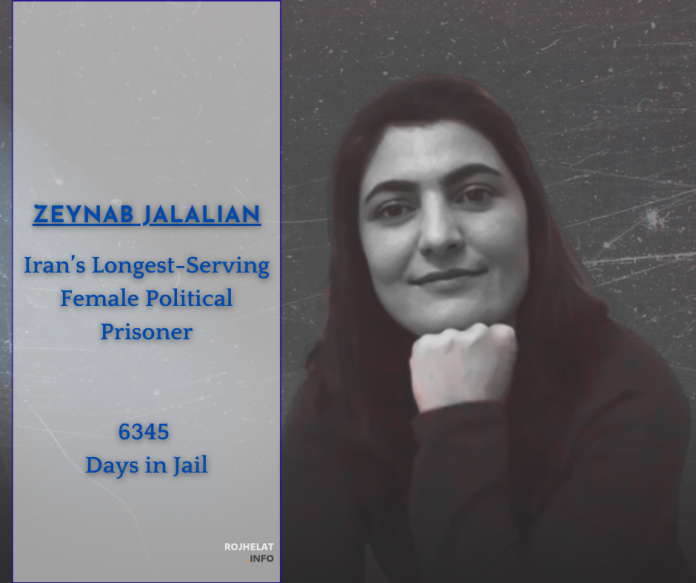Jalalian, a 43-year-old Kurdish political activist, has been imprisoned at Yazd Central Prison for eighteen years under conditions that human rights organizations widely describe as state-sponsored torture and a clear violation of Iranian law. She was arrested solely for her peaceful political activism and has not been involved in armed actions. She continues to be denied adequate medical care, contact with her family, and access to legal justice. Her case is a stark example of the Islamic Republic’s systematic suppression of political dissent and ethnic minorities.
Jalalian suffers from multiple dangerous illnesses that, if left untreated, pose a serious threat to her life:
• Advanced Pterygium: This eye disease may result in permanent blindness if not treated with urgent surgery.
• Chronic illnesses: She also suffers from kidney and gastrointestinal problems, asthma, and oral thrush, a fungal infection.
Despite her deteriorating condition, the prison authorities have repeatedly refused to transfer her to a hospital for necessary examinations and surgeries. In June 2024, she was inhumanely transferred for a CT scan while in severe pain and with her hands and feet shackled. This deliberate medical neglect has put her physical and psychological well-being at serious risk and has been condemned as a form of torture by international organizations.
Since September 2024, Iran’s Ministry of Intelligence has banned all family visits for Jalalian. This enforced isolation, which has continued for over ten months, has been used as a psychological tool to break her resistance. Authorities have pressured her to sign a false “repentance” statement in exchange for access to medical care or early release. However, Jalalian has refused to compromise her principles and has withstood these coercive tactics.
Jalalian’s continued imprisonment blatantly contradicts Iranian legislation. According to Articles 287 and 288 of Iran’s 2013 Islamic Penal Code, individuals affiliated with armed opposition groups who are arrested unarmed and without engaging in conflict should receive a maximum sentence of 10 to 15 years. Nonetheless, Jalalian has been illegally sentenced to life imprisonment.
Despite multiple appeals by her lawyer, Jalalian has never been granted the possibility to be released on parole or for a review of her case.
Government admission: Even Iranian intelligence officials have acknowledged that Jalalian was unarmed and not involved in any violent activity. This confirms that her imprisonment is solely based on her Kurdish identity and political beliefs.
In relation to her case, human rights groups have further reported and documented:
• Deliberate denial of medical care, which amounts to torture;
• Psychological abuse and coercive interrogation tactics;
• Abused in line with broader systematic discrimination against ethnic minorities and politically active women.
In light of this, Jalalian’s family and lawyers have called for visitation rights must be restored, her must no longer be isolated, and all forms of psychological pressure must cease.
Jalalian’s case is a vivid example of the Iranian judiciary’s role as a tool of political oppression, particularly against Kurdish dissidents. As her health continues to deteriorate, international pressure to stop what activists are calling a “gradual execution” is growing. The global human rights community continues to call for justice, dignity, and the right to life for Zeynab Jalalian.


